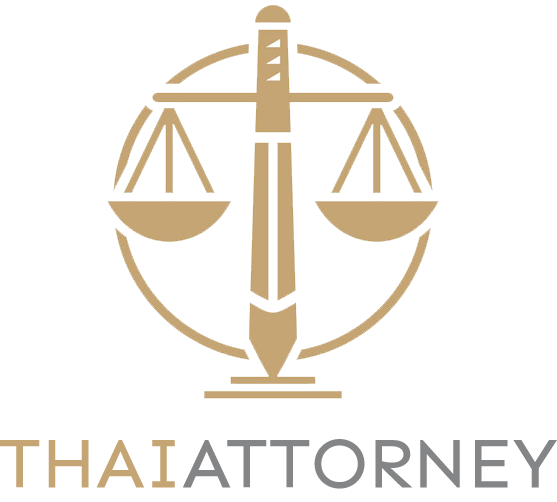Labor disputes are an inevitable part of the employer-employee relationship, arising from conflicts over wages, working conditions, employment termination, or collective bargaining. In Thailand, where the labor force plays a vital role in sustaining economic growth, the management and resolution of labor disputes are of significant importance. The importance of labor disputes in Thailand lies not only in protecting the rights of workers but also in maintaining industrial peace, promoting fair labor practices, and ensuring a stable business environment.
Understanding how Thailand’s legal system addresses labor disputes—and why such mechanisms are crucial—helps businesses, workers, and policymakers create a balanced and just labor environment that supports both productivity and social harmony.
Overview of Labor Disputes in Thailand
A labor dispute in Thailand refers to any disagreement between an employer and employee (or groups thereof) concerning employment terms, working conditions, wages, or rights arising from employment contracts or labor laws. In Thailand, labor disputes are regulated by key legislation, including:
-
The Labor Protection Act B.E. 2541 (1998)
-
The Labor Relations Act B.E. 2518 (1975)
-
The State Enterprise Labor Relations Act B.E. 2543 (2000)
-
The Labor Court Establishment and Labor Court Procedure Act B.E. 2522 (1979)
These laws aim to promote fairness, ensure workers’ welfare, and provide a structured framework for dispute resolution.
Labor disputes in Thailand can be divided into two main categories:
-
Rights Disputes – involving existing legal or contractual rights (e.g., unpaid wages, wrongful termination, violation of employment terms).
-
Interest Disputes – involving demands for new terms or conditions of employment (e.g., requests for higher wages or improved benefits).
Understanding and effectively resolving these disputes is essential for maintaining stability in Thailand’s dynamic labor market.
1. Protecting Workers’ Rights and Fair Treatment
One of the most important aspects of labor disputes in Thailand is the protection of employee rights. Thai labor laws are designed to safeguard workers from unfair treatment and exploitation. When disputes arise—such as unpaid salaries, excessive working hours, or wrongful termination—labor dispute mechanisms allow employees to seek justice and compensation.
Without such systems, many employees, especially in lower-income or informal sectors, would have no means to assert their rights. Labor disputes, therefore, play a corrective role—ensuring that employers adhere to legal obligations and ethical employment practices.
Furthermore, the existence of a legal framework for labor disputes discourages employers from violating workers’ rights. It promotes a sense of accountability and encourages transparent employment practices across industries.
2. Ensuring Industrial Peace and Social Stability
The proper management of labor disputes is essential for industrial peace. When disputes are resolved through legal and peaceful means, it prevents potential strikes, lockouts, or protests that could disrupt production and harm the economy.
Thailand’s industrial relations system emphasizes negotiation, mediation, and arbitration as the first steps before legal proceedings. This approach encourages dialogue between employers and employees, fostering mutual understanding and trust.
The Department of Labor Protection and Welfare (DLPW) often acts as a mediator, helping both sides reach amicable settlements without resorting to strikes or litigation. By providing structured avenues for dispute resolution, Thailand reduces the likelihood of labor unrest, contributing to overall economic and social stability.
3. Supporting Economic Growth and Investor Confidence
A fair and predictable labor dispute system strengthens investor confidence and contributes to Thailand’s economic competitiveness. Investors—both local and foreign—prefer operating in environments where labor relations are stable and labor laws are clear.
When disputes arise, efficient resolution mechanisms minimize disruptions to operations and help maintain productivity. Moreover, transparent labor laws and impartial courts reassure investors that Thailand upholds international labor standards and protects all parties fairly.
Thailand’s reputation as a hub for manufacturing, logistics, and tourism depends heavily on maintaining this balance. Labor disputes, when properly managed, ensure that the rights of workers are protected while also safeguarding the interests of employers and investors.
4. Encouraging Collective Bargaining and Communication
Labor disputes often serve as a catalyst for dialogue between employees and employers. In many cases, disputes arise due to misunderstandings, lack of communication, or failure to address workplace concerns promptly. Through dispute resolution mechanisms—such as negotiation, mediation, or arbitration—both sides are encouraged to engage in constructive discussion.
This process not only resolves the immediate issue but also fosters long-term cooperation. It strengthens collective bargaining, allowing labor unions or worker representatives to negotiate more effectively for fair wages and better working conditions.
Over time, such communication reduces conflict frequency and improves workplace relations, resulting in higher morale and productivity.
5. Promoting Compliance with Labor Laws
Labor disputes highlight the importance of compliance with Thailand’s labor regulations. Employers who fail to comply with labor laws often face complaints or lawsuits from employees, prompting government inspection and legal consequences.
The existence of dispute mechanisms thus acts as an enforcement tool—ensuring that companies adhere to statutory requirements on wages, safety standards, working hours, and benefits.
In addition, labor disputes play an educational role. They raise awareness among workers and employers about their legal rights and duties. Over time, this promotes a culture of legal compliance and fairness within Thailand’s workforce.
6. Strengthening Access to Justice
The establishment of the Labor Court System in Thailand underscores the country’s commitment to fair dispute resolution. Labor courts handle cases involving employment contracts, compensation claims, wrongful termination, and unfair labor practices.
The Labor Court provides a more accessible and less formal environment compared to ordinary civil courts, with procedures designed to protect both workers and employers. Judges consider not only strict legal rules but also equity and fairness.
This access to justice empowers workers—especially those from vulnerable backgrounds—to assert their rights without fear of retaliation or prohibitive legal costs. The importance of labor disputes therefore extends to ensuring social justice and the protection of human dignity.
7. Enhancing Workplace Productivity and Morale
Labor disputes, when handled constructively, can lead to improved workplace practices. They often reveal underlying issues such as poor management, inadequate safety measures, or lack of communication.
By resolving these disputes, companies can identify and address systemic problems, leading to healthier work environments and better employee satisfaction. Employees who feel that their concerns are heard and fairly resolved tend to be more productive and loyal.
In this sense, labor disputes are not merely sources of conflict—they are opportunities for organizational growth and reform.
8. Alignment with International Labor Standards
Thailand is a member of the International Labour Organization (ILO) and has ratified several core labor conventions. By maintaining a robust labor dispute system, Thailand demonstrates its commitment to international labor standards concerning fair treatment, collective bargaining, and freedom of association.
Effective dispute resolution also helps Thailand align with global trade and investment requirements, particularly under free trade agreements that emphasize labor protections. This alignment not only benefits Thai workers but also enhances the country’s global reputation for fairness and good governance.
9. Preventing Unlawful Dismissal and Unfair Practices
Unlawful termination is one of the most common sources of labor disputes in Thailand. The Labor Protection Act stipulates that termination must be based on legitimate grounds and accompanied by proper notice or compensation.
When disputes arise, labor authorities and courts review whether the dismissal was fair and lawful. If found unjustified, the employer may be ordered to reinstate the worker or pay severance and damages.
This mechanism protects workers from arbitrary or discriminatory treatment, reinforcing the rule of law and the principle of fairness in employment.
10. Contributing to a Balanced Labor Market
Finally, labor disputes contribute to the balance of power between employers and employees. Without effective dispute resolution, employers would hold disproportionate control, leaving workers vulnerable. Conversely, an overly rigid system could discourage investment.
Thailand’s balanced approach—combining negotiation, mediation, and judicial processes—ensures that both sides’ interests are respected. It allows disputes to be resolved efficiently while maintaining economic competitiveness and social equity.
Conclusion
The importance of labor disputes in Thailand cannot be overstated. They are an essential mechanism for promoting fairness, justice, and balance within the labor market. By providing structured avenues for resolving conflicts, labor disputes uphold workers’ rights, foster peaceful industrial relations, and strengthen Thailand’s economic and social foundations.
From protecting employees against unfair practices to ensuring employers operate within legal boundaries, the labor dispute system plays a critical role in maintaining harmony and stability. It encourages communication, prevents unrest, and builds trust between the workforce and management.

